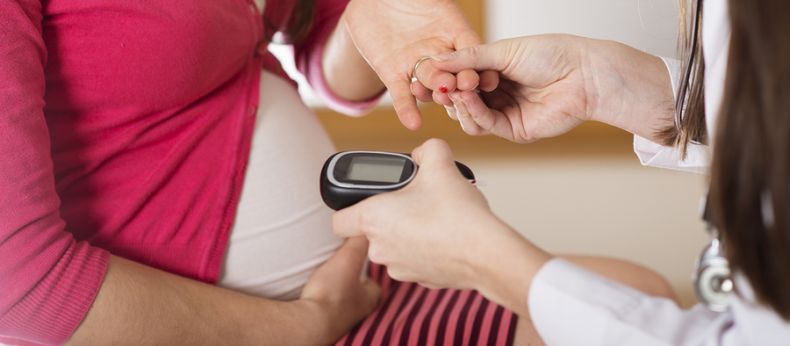
What is Gestational Diabetes?
Increasing numbers of women in China are thinking about having multiple pregnancies. Age, however, is a factor to keep in mind while planning for additions to the family. Gestational diabetes is one pregnancy-related condition where risk increases with age. It’s possible to have happy, healthy deliveries as an experienced mother, and understanding the possible risks makes it easier to make informed decisions to take the necessary preventative care.
What is gestational diabetes?
Gestational diabetes is a condition where women develop diabetes during pregnancy. Some women with gestational diabetes may have actually developed a previously undiagnosed form of mild diabetes before their pregnancy.
What causes gestational diabetes?
Gestational diabetes is caused by a change in the way a woman’s body responds to insulin during pregnancy. During pregnancy, a woman’s cells naturally become slightly more resistant to insulin’s effects. The mother’s body makes more insulin to keep the blood glucose level normal, making more nutrients available for the developing baby. In a small number of women, even this increase is not enough to keep their blood glucose levels in the normal range. As a result, they develop gestational diabetes.
How will I know if I have gestational diabetes?
At Beijing United Family Hospital and Clinics (BJU), all pregnant women are screened for gestational diabetes done between 24 and 28 weeks of pregnancy. It may be done earlier, if you have the following risk factors:
- You have had gestational diabetes during a previous pregnancy
- You have had a stillbirth in a previous pregnancy.
- You have a close relative with a history of diabetes.
- You have a history of polycystic ovarian syndrome.
How can gestational diabetes affect my pregnancy and delivery?
Gestational diabetes increases your risk of delivering a very large baby, resulting in the possibility of an earlier induction than your due date or even requiring a cesarean delivery. Pregnancy–related hypertension (high blood pressure) is more common.
What risks will my baby have if I have gestational diabetes?
Babies born to mothers with gestational diabetes may have problems with breathing, low glucose levels, and jaundice.
Are there long-term effects of gestational diabetes for me and my baby?
For women who have had gestational diabetes, this diabetes goes away after childbirth, but there are higher risks of developing diabetes in the future both for mothers and their children.
How can I control my gestational diabetes?
First, you need to see a nutritional specialist to receive guidance for proper diet and exercise. Then, track your glucose levels while continuing to follow a proper diet and a regular exercise plan. Every two weeks, schedule an appointment to see your OB/GYN physician to evaluate your blood sugar report and ensure your gestational diabetes is under control.
What kinds of exercises can I do during pregnancy?
Walking, light gymnastics, and swimming are OK for women with gestational diabetes, but you should follow a few important guidelines:
- Start exercise only after over 30 minutes of eating, accompanied with a partner.
- While exercising, avoid overexerting yourself, engaging in overzealous exercise, or overstretching.
Will I have to take medication if I have gestational diabetes?
Most cases of gestational diabetes can be controlled with diet and exercise. If diet and exercise are not enough, medication may be needed to control your blood glucose levels under the guidance of our OB/GYN or endocrinology teams.
Will this medication be safe for my baby?
Insulin is commonly used to treat gestational diabetes, and there is no evidence that insulin will harm the fetus.
If I start to take insulin, do I still need to continue to follow a proper diet and regular exercise plan?
Yes! Regular exercise and a proper diet are important to maintain, and should be followed just as before you were prescribed insulin.
If I start to use insulin, will I need to use it for the rest of my life?
No, most cases of gestational diabetes will go away after your delivery. Even if diabetes still persists 12 weeks after delivery, diet, exercise, .and some oral hypoglycemic drugs will work to control and reduce your diabetes.
Is there anything I should do after my pregnancy?
Get tested for diabetes 6-12 weeks after delivery. If your results are normal, you will need to be tested for diabetes again every three years. Your child should be checked throughout childhood for diabetes risk factors, such as obesity.
Copyright United Family Healthcare 2014 All right reserved - 京卫网审[2014]第1927号 - 京ICP备13017554号-4





